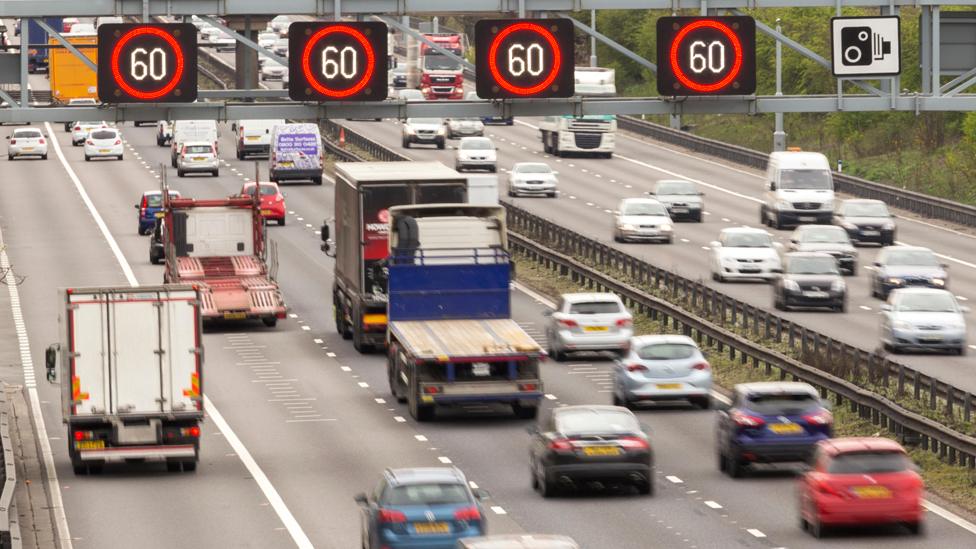Outage prompts investigation amid calls to axe smart motorways
- Published
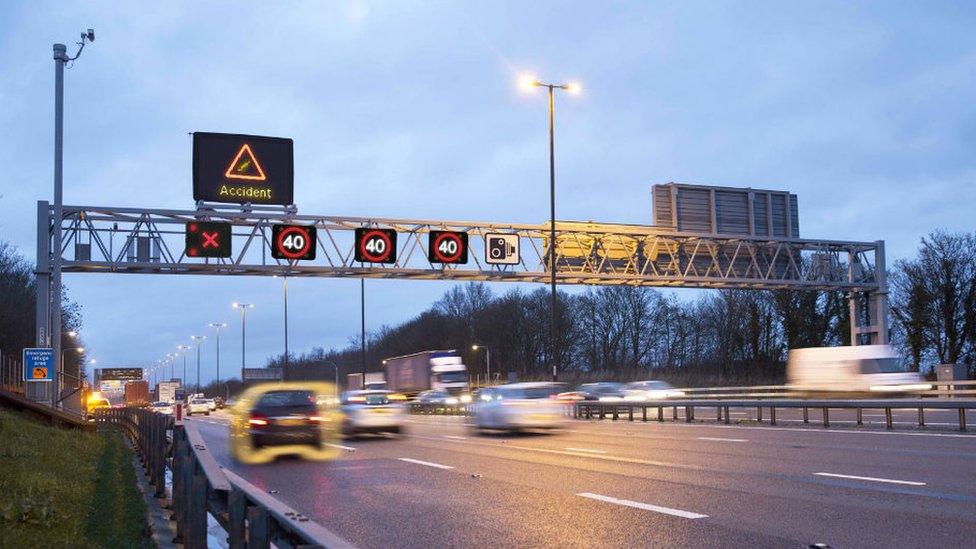
Smart motorways are controlled by computers which constantly monitor the road and can change the speed limit on their own
Large parts of the smart motorway network in England were hit by a two-hour software failure on Wednesday.
The problem, which froze signs and signals and deactivated the stopped vehicle detection system (SVD), lasted from about 08:30 to 10:30 GMT.
National Highways said it was "urgently investigating" the problem.
AA president Edmund King said the failure meant drivers in vehicles that had broken down in live lanes were "sitting ducks".
The fault occurred across the M5, M6, M62 and M60 as well as the M1 north of Northampton, but did not impact roads in the East and South East.
'Putting lives at risk'
Failure of the SVD system meant a car stopped in a running lane would not be automatically detected, and would have to wait to be detected by CCTV or officer patrols.
The outage also made it impossible to change the signals in overhead gantries to close lanes with a red 'X' sign where a hazard had been detected.
A National Highways spokesman said a software failure was to blame but added that it had not received any reports of incidents or injuries as a result.
Andrew Page-Dove, operational control director at National Highways, said engineers had worked to repair the system "as soon as possible" and apologised for any inconvenience caused.
He said following the outage the agency had increased patrols and CCTV monitoring.
A similar outage lasting several hours occurred on 26 October.
In response, Mr King said failures such as this were "putting people's lives at risk" while RAC head of roads policy Nicholas Lyes described it as "deeply concerning".

What is a smart motorway?
A smart motorway is a stretch of road where technology is used to regulate traffic flow and - hopefully - ease congestion. There are three main types:
Controlled, which have a permanent hard shoulder, but use technology such as variable speed limits to adjust traffic flows
Dynamic, where the hard shoulder can be opened up at peak times and used as an extra lane; when this happens, the speed limit is reduced to 60mph
All-lane running, where the hard shoulder has been permanently removed to provide an extra lane; emergency refuge areas are provided at intervals for cars that get into trouble
All three models use overhead gantries to direct drivers. Variable speed limits are introduced to control traffic flow when there is congestion, or if there is a hazard ahead. These limits are controlled by speed cameras


Rotherham MP Sarah Champion wants an end to smart motorway systems
Wednesday's fault came as Rotherham MP Sarah Champion called for an end to the use of all-lane running smart motorways during a debate in Westminster.
She said the government was "prioritising increasing motorway capacity on the cheap and gambling the lives of motorists to get it".
The MP, whose constituent Jason Mercer was killed on a smart motorway in South Yorkshire in 2019, said there had been a "series of outages" on the network but the roads continued to be built, despite the government ordering a pause in new developments.
She said four new sections of all-lane running motorway were due to open this Spring, adding: "While the government dithers, constituencies like mine continue to host death trap roads"
The government announced in January 2022 it was pausing the construction of more all-lane smart motorways for five years while their safety was assessed.
However, roads minister Richard Holden said projects which had been under construction before the pause were continuing because "it was felt by National Highways it would be more detrimental" to stop them "and perhaps cause more incidents than if they continued as planned".
He acknowledged the risk of a collision involving a broken-down vehicle was a "major concern" for drivers.
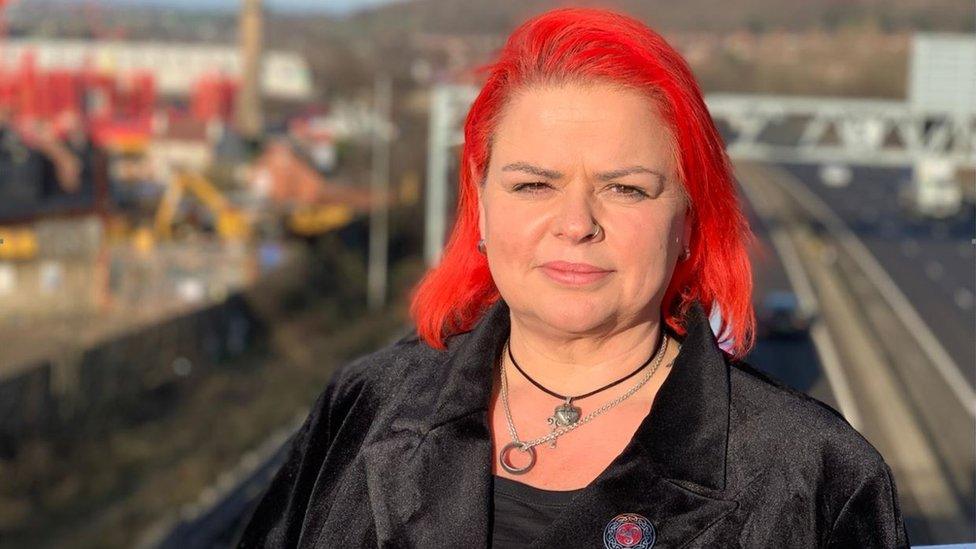
Claire Mercer, from Rotherham, has campaigned against the use of smart motorways since her husband's death
Claire Mercer has campaigned against the use of smart motorways since her husband's death.
Speaking outside Parliament earlier, she echoed the calls for hard shoulders to be restored.
She told BBC Look North: "If there is any query - any worry at all - the hard shoulder should be turned back on while they talk about it."
In December, the transport watchdog said technology aimed at improving safety on all-lane running smart motorways needed to be improved "urgently".
The Office for Rail and Road (ORR) said radar-based technology meant to improve the detection of stranded vehicles on smart motorways with no hard shoulder was falling short of targets.
Related topics
- Published15 December 2022
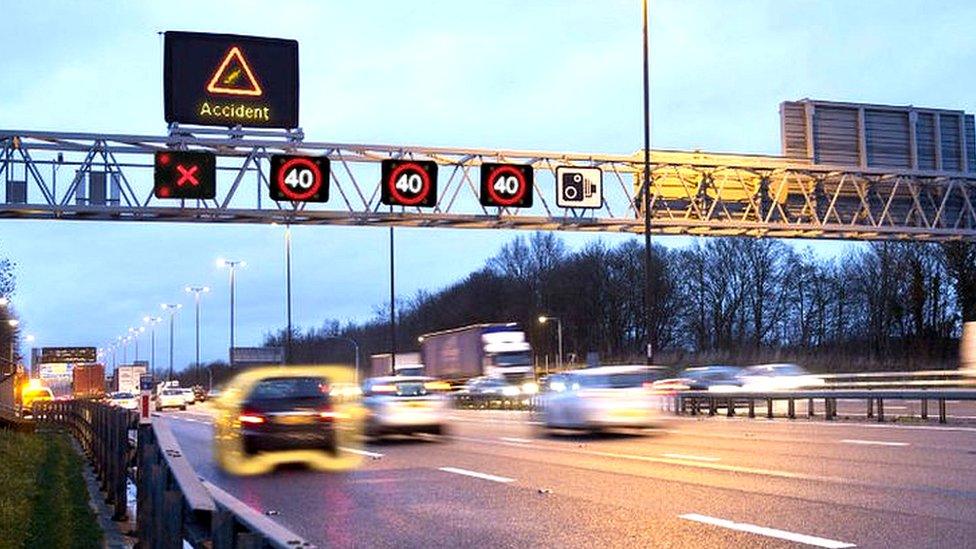
- Published16 November 2022
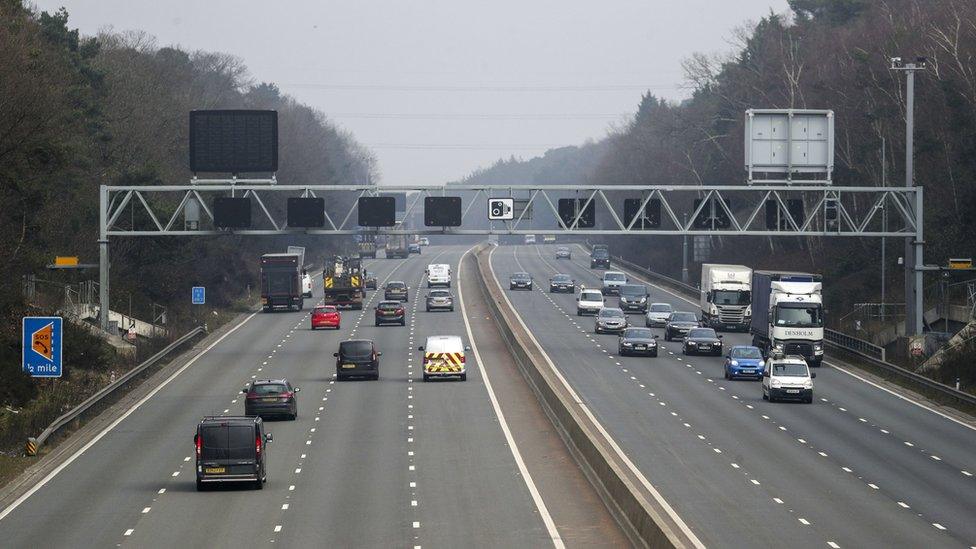
- Published27 October 2022

- Published12 January 2022
